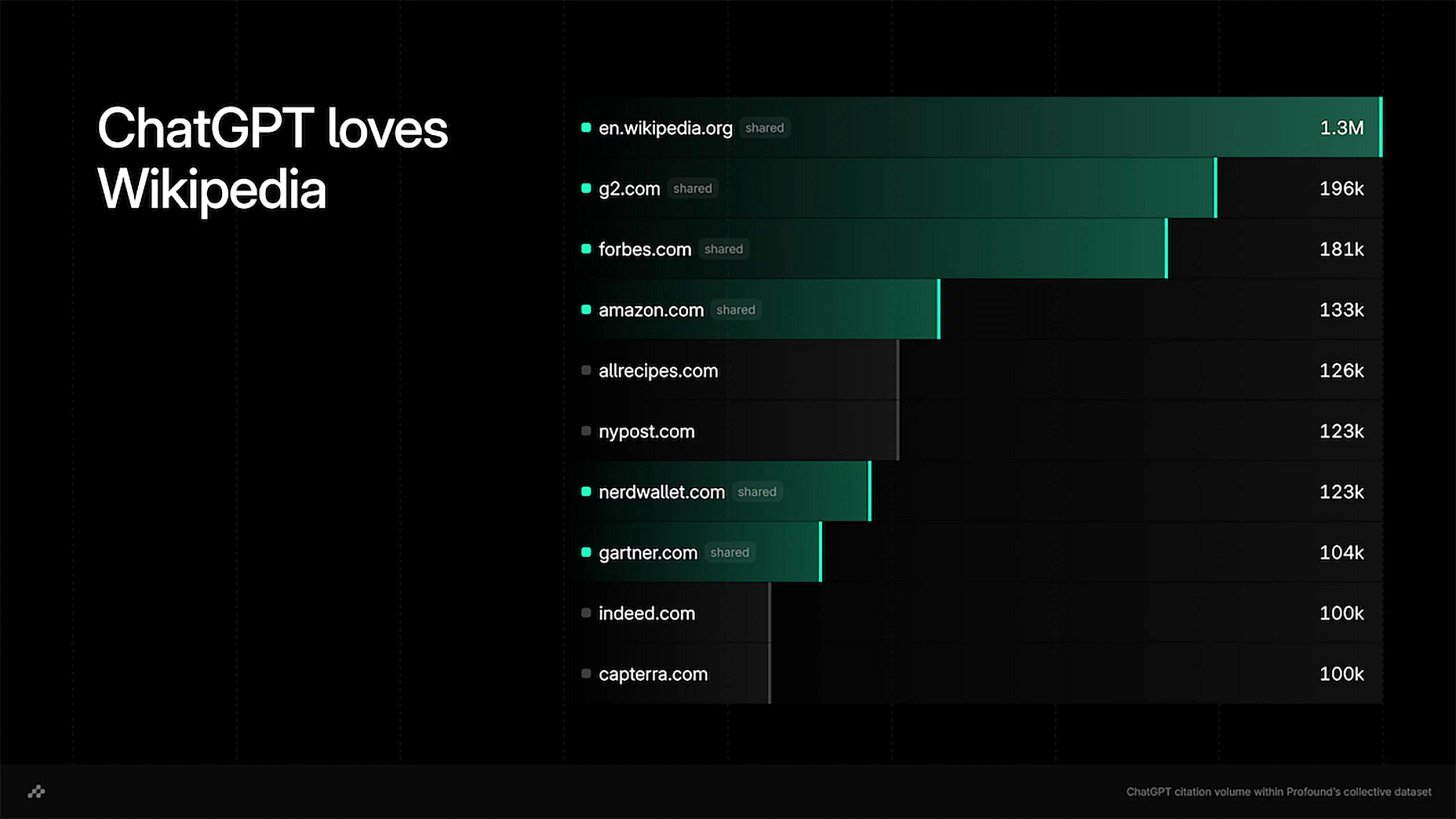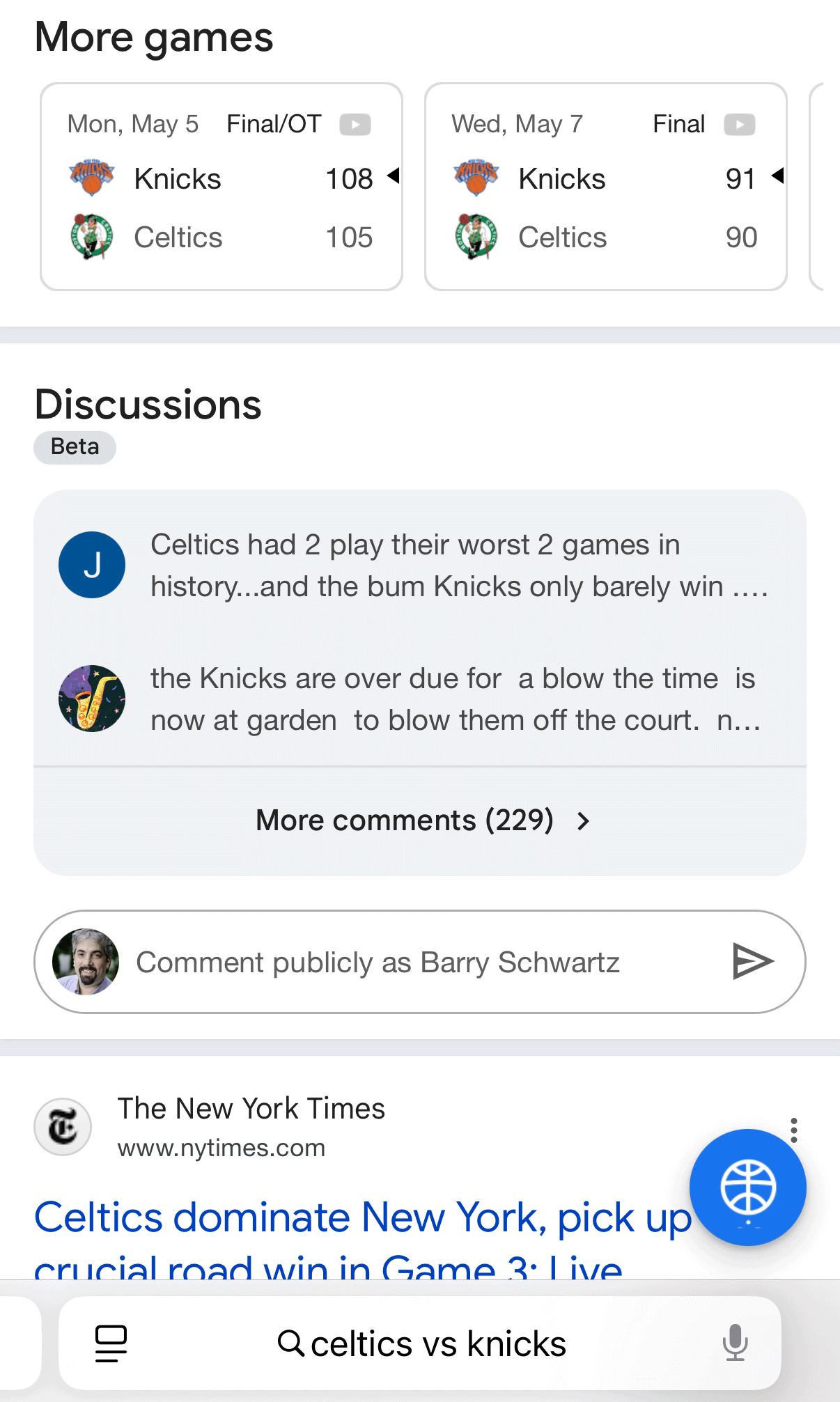Google's Antitrust Case Learnings, Optimising For The AI Shift & The First UX Study of AIO's
SEO TL;DR #71 19/05/2025
This week, I’ve aggregated the findings from Google’s antitrust case, revealing insights into how the search engine works. There are also tips on optimising for GPT (with the sources GPT loves the most) and some new search experiments which hint at what Google is seeking to reward.
General SEO
An SEO Summary from the DOJ’s Antitrust Case Against Google
Some interesting insights into how Google Search really works, starting with a leaked internal document that shows Google is “rethinking their search stack” with large language models at the core.
That includes reimagining fundamental components like retrieval, rankings and result presentation.
According to another court testimony, Navboost (a long-rumoured behavioural signal system) is actually “just a big table” logging user clicks by query.
Engineers still hand-tune signal thresholds, but click data (including dwell time) appears to be a more significant signal than Google has publicly admitted.
Lastly, we saw more evidence that Google does use click data, but adjusts for positional bias. Another DOJ exhibit confirms that Google has systems to account for “position bias” - the inflated click-through rates of top-ranked results simply due to visibility.
💡 Takeaway: The main lesson here isn’t that SEO is broken, it’s that it’s more human than ever. These documents confirm what many SEOs have suspected: user clicks and behaviour factor into rankings, though Google adjusts for bias to avoid overvaluing visibility alone.
With LLMs reshaping how search works under the hood, it’s a reminder that SEO isn't just about technical signals; it's about earning genuine engagement from real users.
Technical SEO
Google Search Console is Testing Manual Annotations
Google Search Console is testing the ability to add your own annotations to performance reports, as reported on Search Engine Roundtable and spotted by Fred Bobet.
💡 Tip: This should help SEOs better track site changes, campaign launches, migrations and more, directly within the GSC UI, but you don’t need to wait.
You can already annotate your GSC data using the GSC Guardian Chrome extension, which automatically adds annotations of major Google updates, right inside your performance reports, allowing you to diagnose traffic improvements or drops more clearly.
Technical SEO
AI Overviews in GSC: All Links Share One Position
Google’s John Mueller has confirmed that all external links within the AI Overview block share the same position in Search Console, even if a link appears buried inside an expandable panel.
This means that if an AIO block ranks first, every link inside it will be reported as “position 1” in GSC, regardless of actual visibility or placement within the block.
This shared position model makes it hard to assess the true performance of AIO placements. Combined with the impression rule (links must be visible to count), it's no wonder many SEOs are sceptical of Google’s claims that AIO boosts clicks, especially when studies show the opposite.
SEO X AI
Beyond Rankings: Optimising for the AI Search Shift
As AI Overviews and answer engines gain traction, a new BCG article argues that visibility is no longer just about rankings; it’s about being the trusted source behind the answer.
BCG’s “Future of Discoverability” breaks down how search is shifting from link lists to AI-powered conversations, and why brands need to start thinking about Answer Engine Optimisation (AEO - another three-letter abbreviation for us) and not just SEO.
💡 Takeaway: SEO still matters, especially for bottom-of-funnel traffic, but it’s no longer enough on its own. To stay visible in AI-driven experiences like Google’s Overviews, ChatGPT, or Perplexity, you need to:
Structure content for machine readability (schema, FAQs, semantic slugs)
Optimise for natural language queries
Build authority across the third-party sites AI pulls its data from (like Wikipedia, forums, and news outlets)
Track AI citations and “zero-volume” keywords that don’t yet surface in traditional tools
Ranking is no longer the goal; recognition is. AEO helps ensure your content isn’t just found, but referenced, by the next generation of search tools.
General SEO
Google Experiments With ‘Discussions’ Feature in Search
Google is testing a new ‘Discussions’ feature in Search results, letting users add public comments to specific queries, which may be shown across Google products like Maps, YouTube, and Search:
Comments are tied to your profile and are publicly visible, with moderation policies in place.
The move could be seen as a step toward owning more of the social Q&A space (currently dominated by Reddit), and may well become a go-to source for “real” answers in Search.
💡 Takeaway: If Google starts surfacing its own discussion threads more prominently, it reinforces a key reality for marketers: visibility today isn’t just about your blog or website.
Even if this feature never releases fully, it’s a good insight into how search works. Brands and creators must engage across platforms like Reddit, YouTube, TikTok, and forums where conversations happen. Relying solely on publishing to your own domain and waiting for organic traffic is an increasingly fragile strategy.
SEO X UX
The First UX Study of Google’s AI Overviews
has published the first proper UX study on how users interact with Google’s AI Overviews, and the results confirm what many of us suspected: clicks are down, trust is fragile, and visibility is now the real SEO currency.The team behind the data asked 70 US searchers to complete 8 real-world Google searches; e.g. “find a portable charger for phones under $15. Search as you typically would”, while UXtweak recorded their screens.
Trying to condense the findings into this TL;DR doesn’t do it justice, so I’ve linked the full post below. It’s packed with data on user behaviour, scroll patterns, and what actually earns clicks after the AIO appears.
PS: I’m running free 20-minute discovery calls for anyone who wants to talk SEO and get my advice on what to focus on in 2025. Use the link below and book a time slot:







